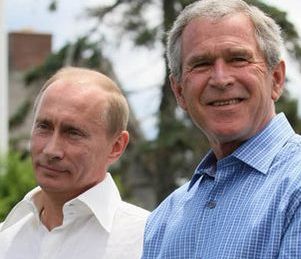
Last week in Lake Seliger, Russia, 10,000 Russian youth gathered for a two-week summer camp that involved volleyball sessions, morning exercise, sailing, and in-depth ideological instruction on President Vladimir Putin’s policies. As Russia’s government relations with Europe and particularly Britain are entering a new hostile stage, a pro-Putin youth movement called Nashi is playing a uniquely visible role in the Kremlin’s campaign against its opponents. Nashi, or “our guys” in Russian, claims 100,000 members across Russia. The movement emerged in 2005 following the youth-led protests in Georgia and Ukraine in 2004, when the Russian government took a series of measures […]


